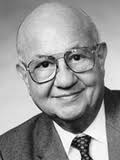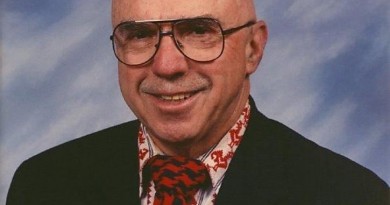Abe Zarem, z”l
One of the most remarkable people I’ve had the pleasure of knowing passed away a few weeks ago. The late Abe Zarem was one of my mentors in my business career. Abe was 106 years old when he passed, and he is believed to have been the last surviving member of the Manhattan Project (he joined that project when he was only 28 years old).
I met Abe nearly 40 years ago, in 1984. At that time, he was about the same age I am now. I was a budding young entrepreneur with the ink barely dry on my MBA. I met him at a program sponsored by the American Electronics Association that was kind of speed dating for startups and investors. He came to the pitch my partner and I gave and became our first outside investor.
Back then, when he was “only” 67, Abe would walk into a room, and his energy was palpable. I thought of myself as pretty energetic guy, but around Abe I felt like he was going Mach 3 and I was going backwards. He was definitely one of those people whose intellect, energy, and personality would take over any room he was in. And yet he didn’t want to tell people what to do. He had no interest in taking a seat on the board. He preferred to be an advisor behind the scenes.
Abe had a PhD in physics from CalTech. He invented the “Zarem Camera” which was far and away the fastest camera in the world at the time, capable of capturing things down to one hundred millionth of a second. He went on to found Electro-Optic Systems, a company that developed the world’s first practical ion engine, used to guide satellites. He sold the company to Xerox when they had 3,000 employees, and he went on to run Xerox’s venture capital group.
When I met Abe he was investing his own money in startups. He told me a great story (which I’ve used in a sermon) about how when he was young his mother asked him, “Why were you put in my womb?” Can you imagine such a question? In other words, why do you exist? What’s your purpose in life?
At the time I met him, Abe told me his mission was helping young entrepreneurs accomplish more than they otherwise would have. His investments in startups weren’t just about trying to make money – the advice he provided along with the financing was his way of giving something back to the entrepreneurial community.
Another useful piece of advice I got from Abe (which also found its way into a sermon) was “underproject and overperform.” As Abe put it, if you project a million dollars a year in revenue and deliver $1.5 million, you’re a hero. If you project $2 million, and deliver $1.5 million, you’re a disappointment. But it’s the same $1.5 million. I learned from him to temper my natural optimism when it comes to financial projections, a lesson that has been useful throughout my life.
Even after I left high tech to become a rabbi, whenever I happened to be in LA I made a point of stopping in to visit Abe at his home in Beverly Hills, and he always made time to see me. I will miss our visits, but I appreciate having had the opportunity to know and learn from him.


